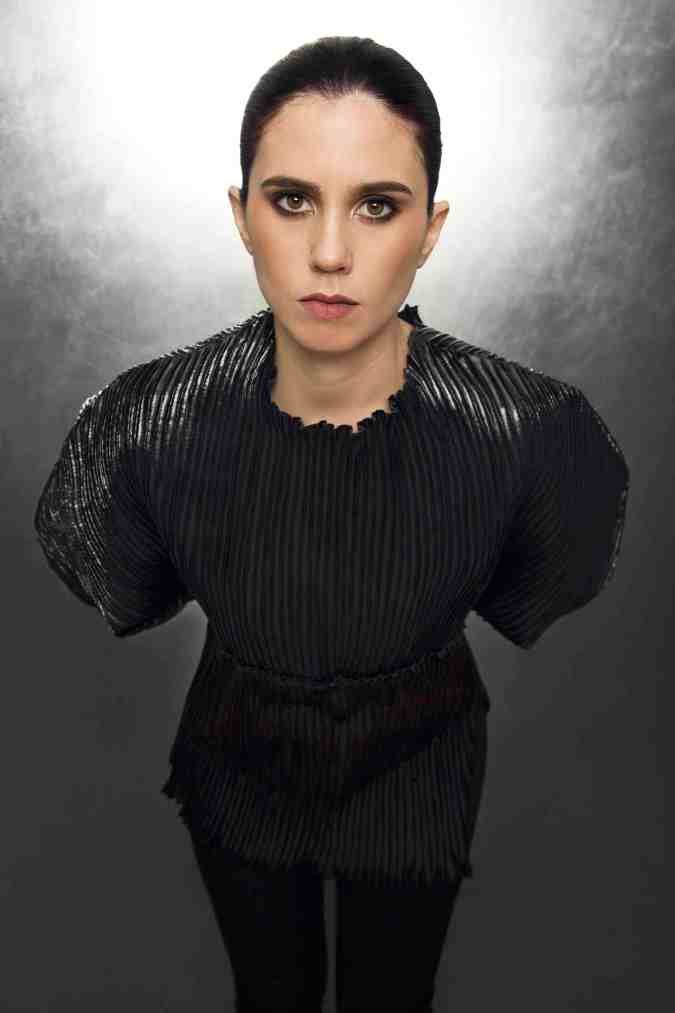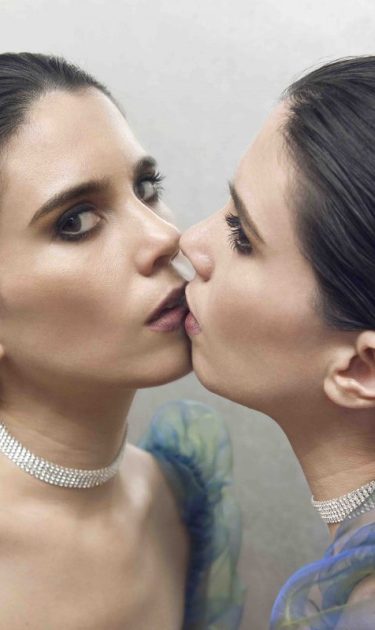It’s been over a decade since Javiera Mena stole our hearts with her debut album Esquemas Juveniles, and she has no intention of ever giving them back.
Ushering us into a new era of glittery dance floor goodness is Espejo, Mena’s fourth studio album and possibly her most introspective effort to date. With a storied and hard-fought career behind her, Espejo embodies contrast and change for the Chilean synth pop goddess, transcending genre-defining albums like Mena and Otra Era to present a record that favors self-reflection over stadium-sized bangers.
For her first album without the guidance of superstar producer Cristián Heyne, Mena has lyrically and sonically engineered songs that harken to the thoughtful giddiness of her musical roots, enlisting Spanish hitmakers Alizzz and El Guincho to round out Espejo’s Euro pop inspirations. Mena’s Spanish fixation goes even further, collaborating with Barcelona-based production crew CANADA on her two latest videos and often referring to the Iberian nation as her home away from home.
In a new interview with Remezcla, Javiera Mena reflects on the geographical challenges of being a Chilean artist, the importance of uplifting other women in a male-dominated industry, and the ways maturity has changed her approach to love and storytelling.
Espejo, your fourth studio album, is out this week. What can we expect from this new musical era?
Espejo comes with 10 all-new songs, which I feel is my number when it comes to albums. I’m still doing electro-pop like on my other records, but with a big difference in terms of lyrics and production. I’m also really excited to bring it on tour and fans can expect some fun updates to the live show as well.

What new themes are you exploring on the record, or are you still writing straight from the heart?
I think I’ve reached a point where I’m thought of as a romantic auteur, since I write a lot about the passions of falling in love. But this record is more about self-reflection than romance, which is why I called it Espejo. It’s about questioning yourself. That’s the vein of songs like “Dentro de Tí” and “Intuición,” which are not about driving you wild and leaving you in the clouds, even though I still think that is a beautiful and powerful form of expression. The lyrics on Espejo are much more introspective than on Otra Era, which has led people to comment the record is more mature. And perhaps that was more juvenile, but now that I’m older I can write about love with a different perspective and still cover new ground.
“We felt overwhelmed by a hypermasculine music environment and were often the only women backstage at festivals.”
On “Dentro de Tí” you quite literally question the meaning of success versus knowing and loving yourself. Is that song in any way autobiographical?
“Dentro de Tí” is meant as an invitation of sorts to people that – well, actually, [laughs] it’s dedicated to a friend of mine. He has an art foundation, comes from a wealthy background and enjoys lots of travel, and I observed that he didn’t seem to do much introspection. Everything was external. I was a little worried he might take it the wrong way, but he loved it. So the song is dedicated to him and a world we’re living in that is too fast, where people don’t stop to consider what’s going on, what people are saying, and instead choose to attack each other and move forward.
Your recent collaboration with Bomba Estéreo’s Li Saumet on “Intuición” presented fans with a dream team-up. How did that feature come about and are there any other guests on the record you can tell us about?
At the moment she is the only one, but after the record is out I was thinking we could do a remix of one of the tracks and bring in another guest, like Miranda!, whom I’ve been wanting to work with for the longest time. But working with Liliana came about really organically; it wasn’t planned or suggested by the label. On the contrary, it had been a dream of mine to work with her.
I met [Li] in New York and I have really fond memories of her showing me around the city since she spends a lot of time there now. We’d talked about collaborating forever and then came “Intuición,” which was finished, but on what’s now her verse I was trying to sing with a Caribbean feel, and thought it would just be better to bring in someone who could do it naturally. She and I have a great mutual admiration for each other’s work and I am very lucky to call her my friend.
Following your career on record and stage, the value you put on women and femininity is immediately noticeable. As a woman in the music industry, do you feel a particular duty to uplift and showcase other women and their work?
That’s extremely important to me. I’m a woman who enjoys the company of other women very much. I’m also a lesbian, but it goes beyond that. I remember wondering why women are so competitive and sometimes disloyal to each other, so I consciously sought to build a team of girls who’d be caring and receptive.
When I performed at Festival de Viña del Mar, I remember wanting to make a symbolic gesture by only having girls on stage. It was the same when I toured in support of Otra Era where it was only girls on stage, because we felt overwhelmed by a hypermasculine music environment and were often the only women backstage at festivals. But now with [Espejo] I’ve brought some men into the team, and I feel like taking this extreme position was necessary to be able to reconcile and reintegrate this masculine energy.

You recently signed with Sony Music, a deal that could have a huge impact on your career. How do you view your journey from indie artist playing small Santiago clubs to international headlining star?
These days as I analyze and discuss it with friends in Mexico and Spain I see how hard it’s been to get things going all the way from Chile. I’ve had to invest a lot to bring people with me; or having to reach places like Mexico ahead of time to rehearse with a band I’ve never met because as a solo artist I can’t afford to have a band living outside the country for a month. So there’s been lots of hustling but I’ve also gained much wisdom too.
I’d say the key phrase to describe my career is “very gradual,” because it’s taken me about 13-14 years to get where I am. I’ve had to overcome lots of two steps forward, one step back situations, but that’s also made me tougher and more adaptable. I’m no longer worried about playing small shows and I’m much more prepared to make do with fewer resources.
Javiera Mena’s Espejo is out now on Sony Music Chile.




